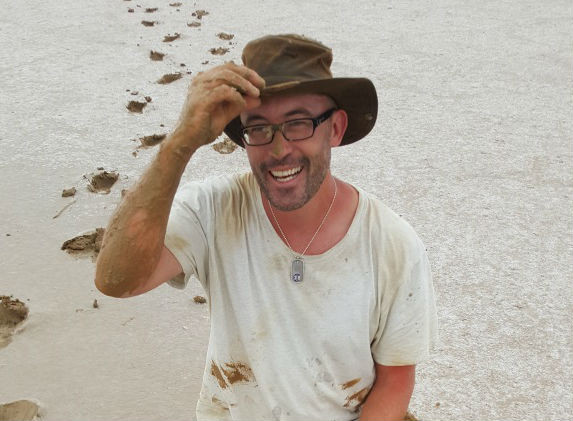Geologists discover 4.5 billion year old meteorite in Australian outback

Researchers trawling the South Australian outback have discovered a 1.7kg meteorite that is 4.5 billion years old, which could unlock historic secrets of the formation of the solar system. The team from Perth used a light aircraft, quad bikes, a drone and 32 cameras to get to the find.
Planetary geologist Phil Bland was in such a rush that he dug the meteorite from a 42cm-deep hole in a lake bed before rain covered the find that was discovered on New Year's Eve. Bland told ABC News: "It is older than the Earth itself. It's the oldest rock you'll ever hold in your hand."
He said that he suspected the meteorite had come from beyond the orbit of Mars and in between Mars and Jupiter. It took researchers three days to recover the rock from its impact site in Kati Thanda, Lake Eyre.
Mechatronic engineer Jonathan Paxman echoed Bland's concerns about the deterioration of the site. He said: "The impact site had deteriorated quite considerably in recent rain, and as a result was quite hard to see from the ground."
The meteorite discovery was the first result of a new observation network of 32 remote cameras across Western and South Australia. Called the Desert Fireball Network, the cameras helped to narrow the search area to a 500m area.
It is understood to be chondrite or stony meteorite and was formed during the creation of the solar system 4.5 billion years ago. The meteorite is reportedly one of only 20 globally with an identified orbit that will allow the team to track it back to its original asteroid.
© Copyright IBTimes 2025. All rights reserved.






















